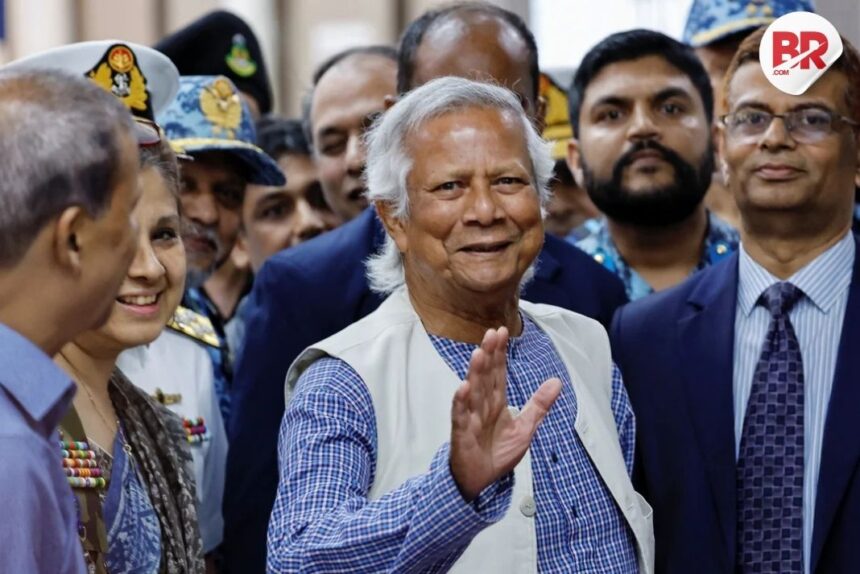
The upcoming Bangladesh polls are about to get a lot more interesting—and worrying. Jamaat-e-Islami, a radical outfit long banned from politics, is back in the game. After the Muhammad Yunus government took charge last year, it lifted the ban on Jamaat. Now, the Supreme Court has restored their registration, allowing them to officially contest elections again.
This move is huge. Jamaat-e-Islami, known for its pro-Pakistan stance and dark history during Bangladesh’s 1971 liberation war, has been trying hard to clean its image. Despite losing its election rights in 2013, it stayed active on the streets and in student politics. Now, it’s ready to play a bigger role again.

What does this mean for regular folks?
Well, if Jamaat gains power, it could disrupt the country’s fragile peace. It has been accused of attacking minorities, especially Hindus, after Sheikh Hasina’s government was ousted.
For Bangladeshis, that’s a serious red flag. And for India, which shares a long border with Bangladesh, the stakes are even higher.
India has big plans in the region, like the Kaladan Multi-Modal Transit Transport Project in Myanmar, which boosts connectivity to the Northeast.
A stronger Jamaat with ties to Pakistan could threaten these projects. Imagine it as a chess game—Jamaat is Pakistan’s knight trying to get a foothold in Bangladesh’s backyard. And India? Well, it’s watching closely, worried the board might be tilted against it soon.
Also Read SWAT Deployed in Bangladesh as Civil Servants Revolt Against Controversial Law
There’s more. Jamaat recently pushed the idea of creating an independent Rohingya state in talks with China’s Communist Party.
That’s a geopolitical curveball. Bangladesh already hosts many Rohingya refugees fleeing Myanmar’s conflict zones. This plan could unsettle the entire region’s balance.
Yet, Jamaat’s journey isn’t smooth. They don’t have the numbers to win alone and have often played kingmaker, allying with parties like the Bangladesh Nationalist Party (BNP).
But even that relationship is tense now. BNP wants elections by 2025, while Jamaat prefers more time to build its base, aligning with Yunus’s government staying longer.
One more thing—Jamaat tries to rewrite history by downplaying Bangladesh’s freedom struggle and India’s role in 1971.
Its student wing’s controversial claims about Muslim participation in the war sparked backlash and forced apologies. This shows Jamaat’s bigger goal: creating an Islamic state aligned with Pakistan, which is a direct challenge to Bangladesh’s secular ideals.
So, what’s the takeaway?
The Bangladesh polls are not just about local politics. They are a test of the region’s future stability. India must keep an eye on Jamaat’s moves because if this radical group succeeds, it could bring security challenges and threaten India’s strategic projects in the northeast.
Also Read Yunus vs Khaleda Zia: Why Bangladesh’s December 2025 Election Could Change Everything












